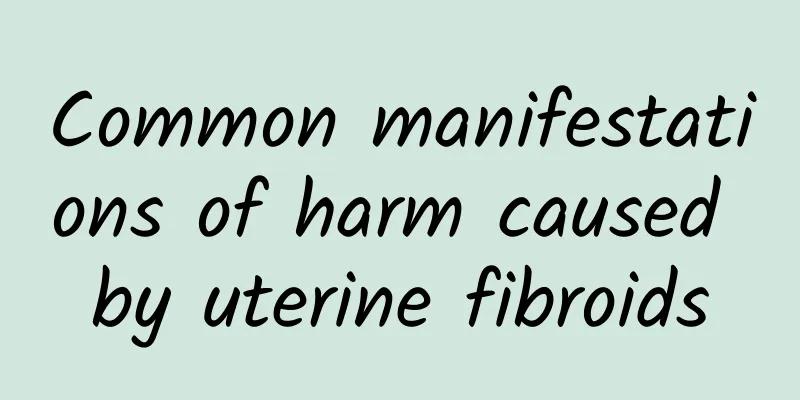A brief analysis of the symptoms of ovarian cysts

|
Knowing the symptoms of ovarian cysts is crucial for early detection and treatment of ovarian cysts. As a common gynecological disease, the symptoms of ovarian cysts are not obvious in the early stages and are often confused with other diseases. Here we ask experts to briefly introduce the common symptoms of ovarian cysts . Lower abdominal pain This is the initial symptom of ovarian cyst before the patient feels a mass in the lower abdomen. Due to the weight of the tumor itself and the influence of intestinal peristalsis and changes in body position, the tumor moves in the pelvic cavity, involving its pedicle and pelvic infundibulum ligament, causing the patient to have a feeling of fullness and falling in the lower abdomen or iliac fossa. Increased abdominal circumference and abdominal mass It is the most common symptom of ovarian cysts in the main complaint. The patient finds that his clothes or belt seem tight, and he just notices that his abdomen is enlarged, or he feels it accidentally in the morning, so he presses his abdomen and finds a mass in the abdomen, plus abdominal distension and discomfort. stomach ache If the tumor has no complications, there is very little pain. Therefore, if an ovarian tumor patient feels abdominal pain, especially if it occurs suddenly, it is mostly due to the twisting of the tumor pedicle, or occasionally due to tumor rupture, bleeding or infection. In addition, malignant cysts often cause abdominal pain and leg pain, and the pain often causes patients to seek emergency treatment. Menstrual disorders Generally, ovarian cysts, even bilateral ovarian cysts, do not cause menstrual disorders because they do not destroy all normal ovarian tissues. Some uterine bleeding is not endocrine, but may be caused by ovarian tumors that change the pelvic blood vessels, causing endometrial congestion; or by ovarian malignant tumors that directly metastasize to the endometrium. Menstrual disorders caused by endocrine tumors are often combined with other secretory effects. Compression symptoms Huge ovarian tumors can cause dyspnea and palpitations due to compression of the diaphragm, which are symptoms of ovarian cysts. Ovarian tumors combined with large amounts of ascites can also cause these symptoms. However, some ovarian tumor patients have dyspnea due to unilateral or bilateral pleural effusions, and often have ascites. Everyone's living and working environment is not exactly the same, and the symptoms of ovarian cysts will vary from person to person. It is recommended that you consult our online experts first to learn more about the symptoms of ovarian cysts. |
<<: Pay attention to the diet of patients with ovarian cysts
>>: Ovarian cyst prevention tips
Recommend
Xu Heng's banana diet may cause ketoacidosis
Recently, print media reported that well-known ar...
Pumpkin lowers blood pressure and blood sugar, here are 4 health benefits you must know! Nutritionist: Rich in potassium and vitamin A, diabetics should be careful when eating
When I see pumpkins, I think of Halloween. The an...
Are cervical precancerous lesions serious hazards to patients?
What harm does cervical precancerous lesions do t...
What causes cervicitis in women? Be alert to the four major causes of cervicitis in women
Many women do not fully understand the causes and...
Are ovarian cysts serious? What are the symptoms?
Are ovarian cysts serious? What are the symptoms?...
The pigs are overcrowded! Taiwan Sugar: Pork prices have dropped sharply, so you can eat pork with peace of mind
Taiwan Sugar Corporation said that due to the new...
What kind of infection is Bartholin's gland cyst?
Bartholin's gland cysts are usually not cause...
What is the cure for vaginitis?
What is the method to cure vaginitis? With the co...
Key points for diagnosis of uterine fibroids
Uterine fibroids refer to benign tumors that occu...
Can I still get vaccinated when I am four months pregnant? What are the dangers?
It is also possible to have an abortion in the fo...
Lose weight during the menstrual cycle and shape your body first! Female Chinese medicine practitioner: Drink ginseng and brown sugar drink to lose weight easily during the golden weight loss period
Some people say, "You won't gain weight ...
The main symptoms of chronic cervicitis
The main symptoms of chronic cervicitis: Cervicit...
Eat 2 slices of toast 30 minutes after exercise to lose more weight
Exercise plays an important role in the winning f...
What are the hazards of cervicitis in women? Women should be careful of the four major hazards of cervicitis
The occurrence of cervicitis can have a very big ...
Can I take Chinese medicine if I have pelvic inflammatory disease? Can I take Chinese medicine to treat it?
Pelvic inflammatory disease can be treated with t...









